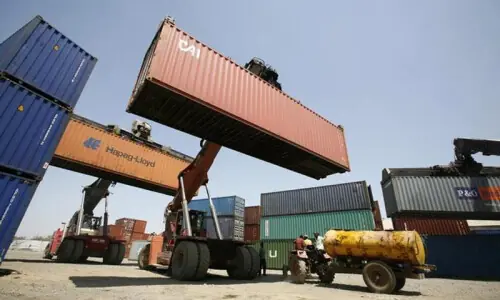Innovations in the financial sector, such as insurtech and fintech, are helping consumers around the world. However, in Pakistan, the prevalent attitude regarding online financial services remains sceptical at best. Albeit, people are adapting to new technologies as the ubiquity of QR codes at eateries and shopping centres increases.
A major portion of the masses still prefers hard cash. Savings easily outweigh investments with an investment to GDP ratio of 15 per cent juxtaposed to an average 32pc in other emerging economies.
Financial inclusion stands at 15pc compared to 33pc for other lower-middle-income countries. The banking sector encompasses almost 80pc of the country’s financial services though serving only 15pc of its population.
‘Insurtech will not be able to rapidly increase the insurance-to-GDP ratio, currently at 0.7pc’
Insurtech, due to the already low penetration rate of the insurance sector, faces similar issues. Conventional mindsets and religious reasons present a hindrance to the traditional industry’s growth let alone its augmented version i.e. insurtech.
Mr Umar Zia Khan, Regional Head Transaction Banking, Askari Bank, shared his views with the writer. “At present, there are nine major fintech players in the industry with over 400,000 agents handling a volume of over Rs428 billion (3pc of total deposits in 2018) through 258 million transactions. However, in the same period, over-the-counter transactions were around 56m handling a volume of Rs200bn”, he said.
“I foresee that these fintech companies will eventually be acquired by banks due to their limited capital as well as the restricted role assigned by the State Bank of Pakistan. Similarly, due to the highly regulated nature of the insurance sector, poor identification of business risks, the religious element involved and affordability issues, insurtech will not be able to increase insurance to GDP ratio (currently at 0.7pc) in Pakistan rapidly. However, the profitability of the insurance sector can increase manifolds by digitally reengineering business processes.”
Furthermore, the general lack of awareness, lukewarm enthusiasm towards adopting new technologies and the inadequate infrastructure prevents services such as microfinance, fintech and insurtech to reach their tipping point.
“Pakistan has the lowest rate of insurance penetration in the region,” says Muhammad Waqar Asghar, the founder and CEO of Mawazna.com that provides a platform for the comparison of financial products in the country.
“Leading insurers in Pakistan have now started making an effort to offer digital products, tailor offerings to the needs of specific customer segments and reach consumers through additional channels such as Mawazna. Such endeavours will help end-users to increase their understanding of insurance products and enable companies to offer a seamless customer experience as compared to conventional ways of selling insurance.”
“In the absence of digital credit scoring, applying for and receiving personal finance products such as consumer loans and credit cards is a hectic and time-consuming process. Fintech firms create financial literacy and awareness and help institutions reach digital-savvy customers. However, this requires close cooperation between banks and emerging fintech businesses,” he added.
According to Pakistan Telecommunication Authority’s report for 2017-18, there has been an uptick in mobile subscribers. Mobile bank accounts have also increased to 38.5m in 2018 from 15m in 2015. The trend of biometric registration is helpful and conducive for the growth of services such as fintech and insurtech.
As the country’s collective attitude towards new technology improves, modern financial services can become a burgeoning business in Pakistan.
Published in Dawn, The Business and Finance Weekly, October 7th, 2019






























